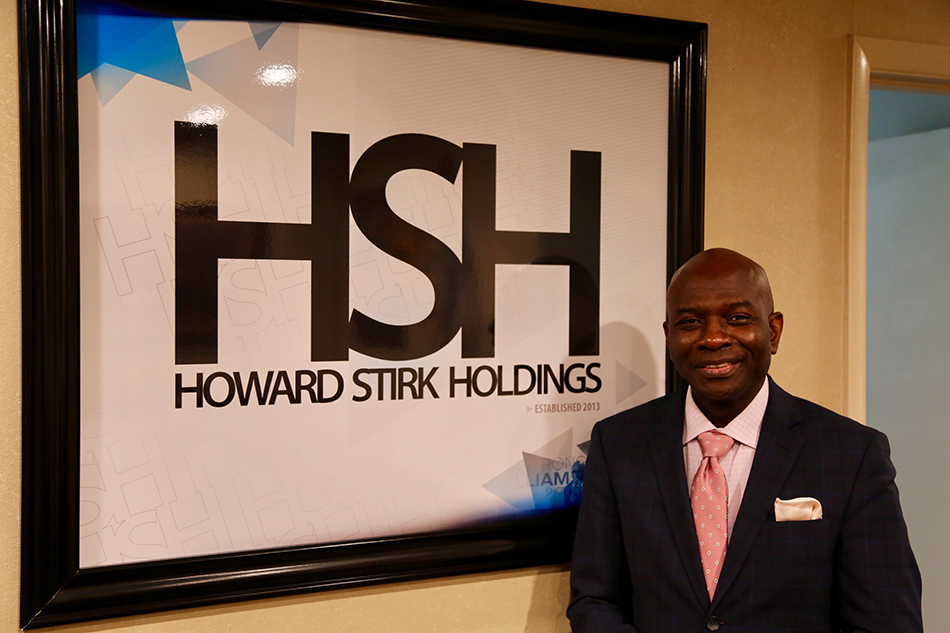Howard Stirk Holdings, AT&T Strike Retrans Deal

The smarter way to stay on top of broadcasting and cable industry. Sign up below
You are now subscribed
Your newsletter sign-up was successful
Station owner Howard Stirk Holdings has settled its retrans dispute with AT&T and replaced its negotiating agent. The stations at issue, WEYI Flint-Saginaw, Mich., and WWMB Myrtle Beach-Florence, S.C., had been off DirecTV since June.
That resolution is according to Armstrong Williams, sole owner of the broadcast group.
Related: Williams Talks 'Scorched Earth' and Retrans
Howard Stirk Holdings was one of nine station groups the FCC said last week had not negotiated retrans with AT&T in good faith, primarily because the FCC said the retrans rep negotiating for all the groups, Duane Lammers of Max Retrans, had unreasonably delayed negotiations and was not engaging in station-specific negotiations.
Williams said the agreement was struck over the weekend and after he had replaced Lammers with another representative. "While the agreement may not be perfect for either party, it nevertheless ends the blackout on DirecTV of my stations and allows viewers who were watching by satellite (the stations were always available free-over-the-air throughout this process) to see the important and local content these stations provide," Williams told Multichannel News.
AT&T had already settled with three of the nine groups before last week's FCC decision--Deerfield Media, GoCom Media of Illinois, and Second Generation of Iowa.
Williams wrote that he was glad to put the impasse behind him but still said AT&T was the one with an outsized advantage in the negotiations "to wrestle below-market retransmission rates from much smaller broadcasters," denying diverse programming to its subs in the process.
The smarter way to stay on top of broadcasting and cable industry. Sign up below
Williams said he had learned some lessons in the process and signaled that while this battle was over, the fight continued. "While our impasse has ended, there remains a fundamental devaluation of free over-the-air broadcast television," he said.
He also used the opportunity to plug the sunset of the STELAR satellite compulsory blanket license that allows DirecTV and Dish to import distant signals into local markets at below-market rates.
AT&T has argued that the FCC's finding that the nine broadcast groups did not negotiate in good faith was a reason Congress needed to renew the STELAR law since, in addition to the compulsory license it includes the good faith retrans negotiating mandate.
AT&T had no comment on the settlement with Stirk, but in its response to the FCC complaint made it clear again that it thinks the FCC decision illustrates why STELAR needs to stay. "The bad faith negotiations that caused these TV blackouts harmed the public and we agree with the FCC's condemnation of these anti-consumer practices. If Congress does not renew STELAR this year, these broadcaster TV blackouts will increase in frequency, as the FCC will no longer be a backstop against such bad faith conduct from broadcasters.
Williams disagrees. He said another lesson learned was that Congress "was wise in its original intent to mandate a sunset to STELAR. STELAR was passed 30-years ago to temporarily give start-up satellite television companies a significantly discounted copyright license to allow them to better compete against big cable monopolies. But today, AT&T is a $235 billion titan, no longer a start-up in need of government assistance. Their attempt to use the Deerfield Media proceeding as justification to extend STELAR is wrong. STELAR’s time has come and gone and it should expire as Congress originally intended."
The Senate Commerce Committee on Wednesday (Nov. 13) is scheduled to mark up a STELAR reauthorization bill. Like AT&T, Committee chairman Roger Wicker (R-Miss.) says the license and law should be renewed — it expires at the end of December unless that happens.
Contributing editor John Eggerton has been an editor and/or writer on media regulation, legislation and policy for over four decades, including covering the FCC, FTC, Congress, the major media trade associations, and the federal courts. In addition to Multichannel News and Broadcasting + Cable, his work has appeared in Radio World, TV Technology, TV Fax, This Week in Consumer Electronics, Variety and the Encyclopedia Britannica.

